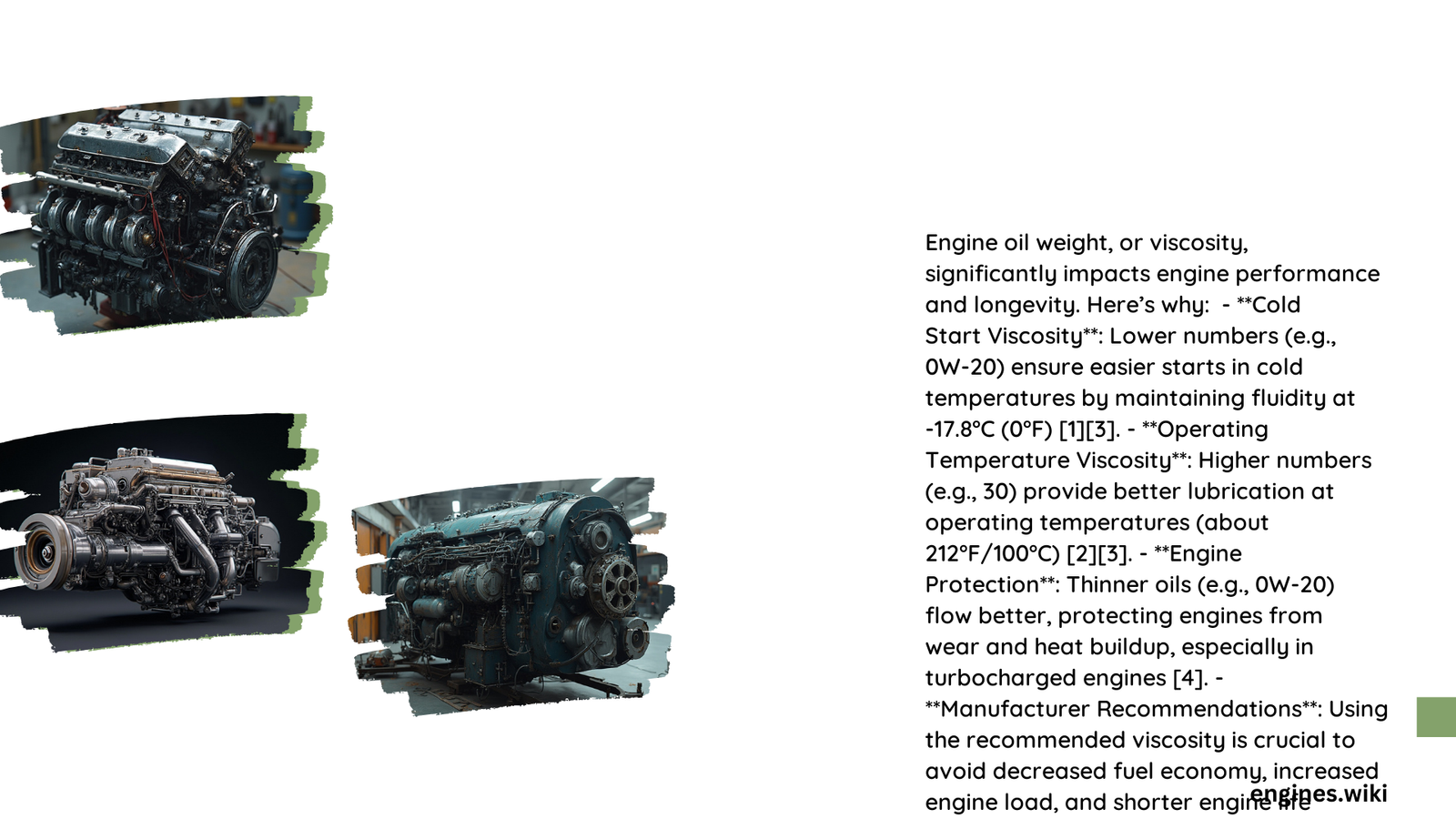Engine oil weight is a critical factor in maintaining optimal vehicle performance, directly influencing lubrication efficiency, wear protection, and overall engine health. Selecting the incorrect oil viscosity can lead to significant mechanical complications, reduced fuel economy, and potential long-term engine damage. Understanding the nuanced relationship between oil weight and engine requirements is essential for automotive enthusiasts and everyday drivers seeking to maximize their vehicle’s performance and longevity.
What Determines Engine Oil Weight?
Engine oil weight represents a standardized viscosity measurement that indicates how effectively the lubricant flows at different temperatures. The Society of Automotive Engineers (SAE) establishes these weight classifications, which typically appear as multi-grade ratings like 5W-30 or 10W-40.
Key Factors in Oil Weight Selection
| Oil Weight | Cold Temperature Performance | Hot Temperature Performance | Typical Application |
|---|---|---|---|
| 0W-20 | Excellent | Low Viscosity | Modern Compact Cars |
| 5W-30 | Very Good | Medium Viscosity | Most Passenger Vehicles |
| 10W-40 | Good | Higher Viscosity | Older or High-Mileage Engines |
Why Does Oil Weight Impact Engine Performance?

How Does Viscosity Affect Lubrication?
- Flow Characteristics
- Thinner oils flow more quickly during cold starts
- Thicker oils provide better protection under high-stress conditions
-
Improper viscosity can cause inadequate lubrication
-
Temperature Resistance
- Low-weight oils perform better in cold climates
- High-weight oils maintain stability in high-temperature environments
- Viscosity index determines oil’s performance range
What Happens with Incorrect Oil Weight?
Potential Consequences of Mismatched Oil
- Increased Engine Wear: Incorrect viscosity can cause metal-to-metal contact
- Reduced Fuel Efficiency: Thicker oils require more energy to circulate
- Compromised Engine Protection: Inadequate lubrication leads to accelerated component degradation
How to Choose the Right Engine Oil Weight?
Recommended Selection Strategies
- Consult Vehicle Manual: Manufacturer specifications are paramount
- Consider Climate: Adjust oil weight based on local temperature ranges
- Evaluate Vehicle Age: Older engines might require different viscosity
- Assess Driving Conditions: High-performance or extreme environments demand specialized oils
Technical Insights into Oil Weight Performance
Quantitative Viscosity Measurements
- 0W-20 Oil:
- Low-temperature viscosity: Approximately 3,200-3,800 cP
-
High-temperature performance: 6.1-7.4 cP
-
5W-30 Oil:
- Low-temperature viscosity: Around 3,800-4,100 cP
- High-temperature performance: 9.3-12.6 cP
Expert Recommendations
Professional Maintenance Tips
- Regular oil analysis
- Consistent adherence to manufacturer guidelines
- Periodic viscosity checks
- Understanding individual vehicle requirements
Advanced Considerations
Emerging Oil Technologies
- Synthetic oils offer more consistent performance
- Improved additive packages enhance protection
- Nanotechnology developments promise better lubrication characteristics
Final Observations
Engine oil weight matters significantly in maintaining vehicle performance, protecting mechanical components, and ensuring long-term reliability. Drivers should prioritize informed decision-making based on comprehensive understanding rather than generic assumptions.
Practical Takeaway
Select oil weight strategically, not arbitrarily.
